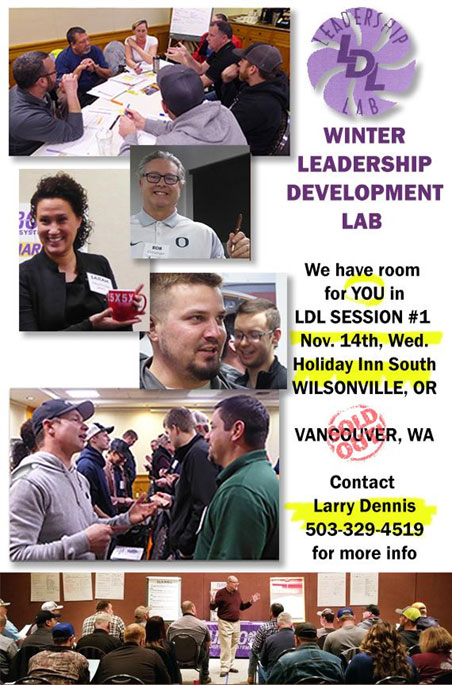Hitchhiking 101
Tom, a team leader for a dental equipment manufacturer, told session eight of Turbo’s Leadership Development Lab…

“My team members and I had wanted to have some time for training for our department for quite awhile. I was hesitant to seek out a training company because I assumed that everyone on my crew wanted something different. I wasn’t sure where to start, although I knew we really wanted and needed the additional training. One thing was for sure – I had to find out what we needed and get the ball moving.
“I made the decision to have a brainstorming session with all our department in attendance. Because we are a small group, I needed all of them completely involved. I titled our session simply, ‘Training Goals and Needs.’ The purpose of the brainstorming session was to get them to commit to some kind of training goals, and tell me honestly what they needed from me and the company. I assured them that each person’s idea or ideas were valuable and would be discussed openly. I told them one of the rules of brainstorming is that no one criticizes or condemns others or their ideas and no complaining about anything occurs during the session. (Leadership Principle #3 Don’t Criticize, Condemn, or Complain)

As soon as they knew that no one would be shooting down their ideas or making personal attacks on them, they began to open up. Because I guaranteed that every idea would be written down, because everyone’s ideas have merit, the ideas began to flow. As I wrote their ideas down on the flip chart pad I borrowed from the engineer’s office, each idea built on the other idea before it (a concept known as ‘hitchhiking or synergy’). When we were finally done, everyone had contributed at least three training goals and numerous ideas on how I could take the action needed to fulfill those goals.
“The lesson I learned from this experience was the truth in the old saying, ‘You’ll never find out unless you ask.’ I need to ask more often and listen to my teams ideas. (Leadership Principle #6 Be an Active Listener)

“The action I call you to take is don’t be afraid to ask your team for what they need to work at peak performance levels.
“The benefit you will gain is a greater knowledge of the needs of your team. You will know when, where, and how to use your scarce resources. You will be able to concentrate on the vital few.”
As you approach improving the performance of your department, crew, team you don’t have to be a perfect facilitator, have the exact right question, or say all the right words. What you need is a sincere desire to help your team, a willingness to ask for input, and listen to every idea they are courageous enough to suggest.


 Larry W. Dennis, Sr. President,
Turbo Leadership Systems©
Larry W. Dennis, Sr. President,
Turbo Leadership Systems©
